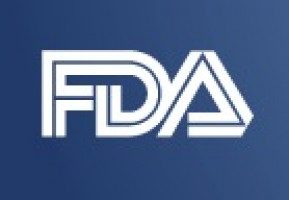
The U.S Food and Drug Administration has granted approvals to nivolumab and ipilimumab in combination for the treatment of intermediate or poor risk, previously untreated advanced renal cell carcinoma.
The approvals were based on CheckMate 214 (NCT02231749), a randomized open-label trial.
Patients with previously untreated advanced RCC received nivolumab (3 mg/kg) plus ipilimumab (1 mg/kg) every 3 weeks for 4 doses followed by nivolumab monotherapy (3 mg/kg) every 2 weeks, or sunitinib 50 mg daily for 4 weeks followed by 2 weeks off every cycle.
Efficacy was evaluated in intermediate or poor-risk patients (n=847).
The trial demonstrated statistically significant improvements in overall survival (OS) and objective response rate (ORR) for patients receiving the combination (n=425) compared with those receiving sunitinib (n=422).
Estimated median OS was not estimable in the combination arm compared with 25.9 months in the sunitinib arm (hazard ratio 0.63, 95% CI: 0.44, 0.89; p<0.0001).
The ORR was 41.6% (95% CI: 36.9, 46.5) for the combination versus 26.5% (95% CI: 22.4, 31) in the sunitinib arm (p<0.0001). The efficacy of the combination in patients with previously untreated renal cell carcinoma with favourable-risk disease was not established.
The most common adverse reactions (reported in at least 20% of patients treated with the combination) were fatigue, rash, diarrhoea, musculoskeletal pain, pruritus, nausea, cough, pyrexia, arthralgia, and decreased appetite.
The recommended schedule and dose for this combination is nivolumab, 3 mg/kg, followed by ipilimumab, 1 mg/kg, on the same day every 3 weeks for 4 doses, then nivolumab, 240 mg, every 2 weeks or 480 mg every 4 weeks.
Prescribing information for both nivolumab and ipilimumab have been updated with these results.
Source: FDA
The World Cancer Declaration recognises that to make major reductions in premature deaths, innovative education and training opportunities for healthcare workers in all disciplines of cancer control need to improve significantly.
ecancer plays a critical part in improving access to education for medical professionals.
Every day we help doctors, nurses, patients and their advocates to further their knowledge and improve the quality of care. Please make a donation to support our ongoing work.
Thank you for your support.